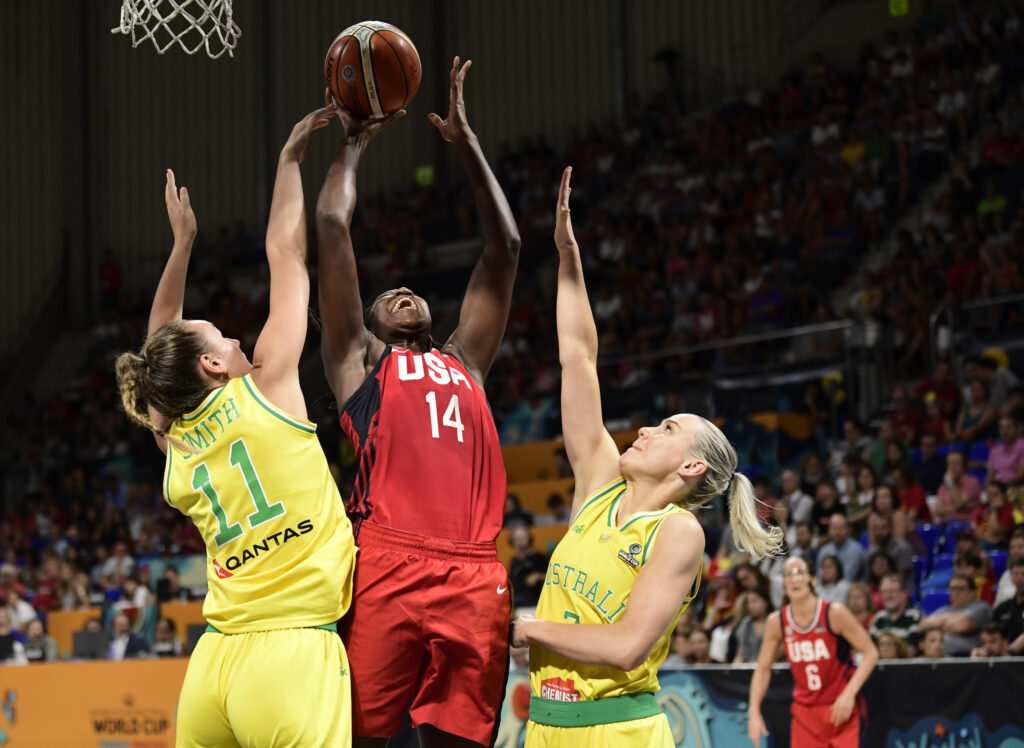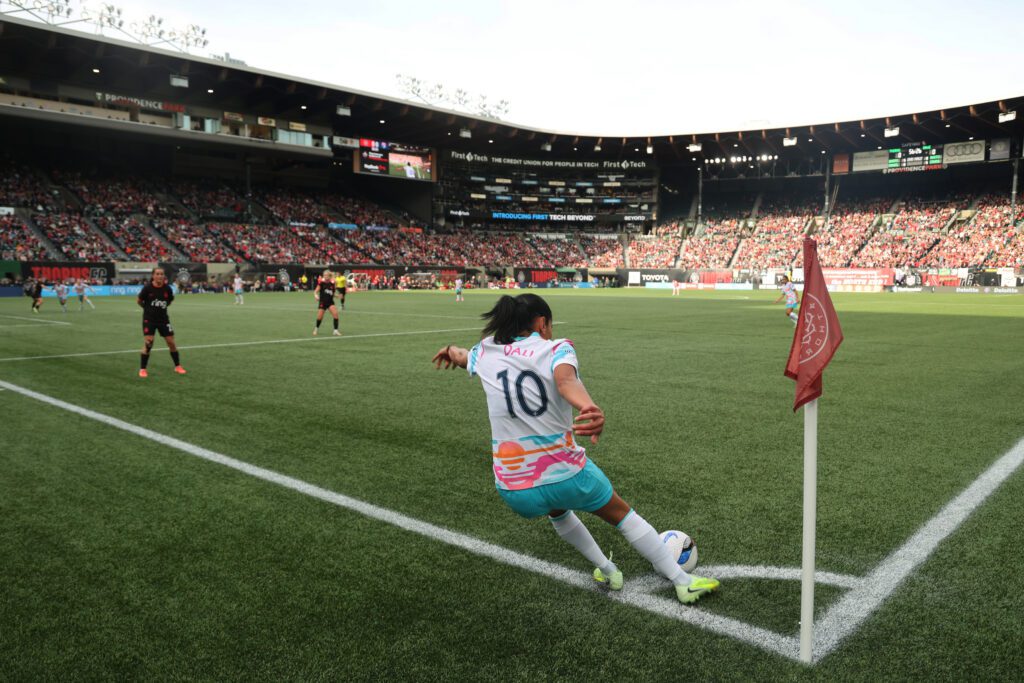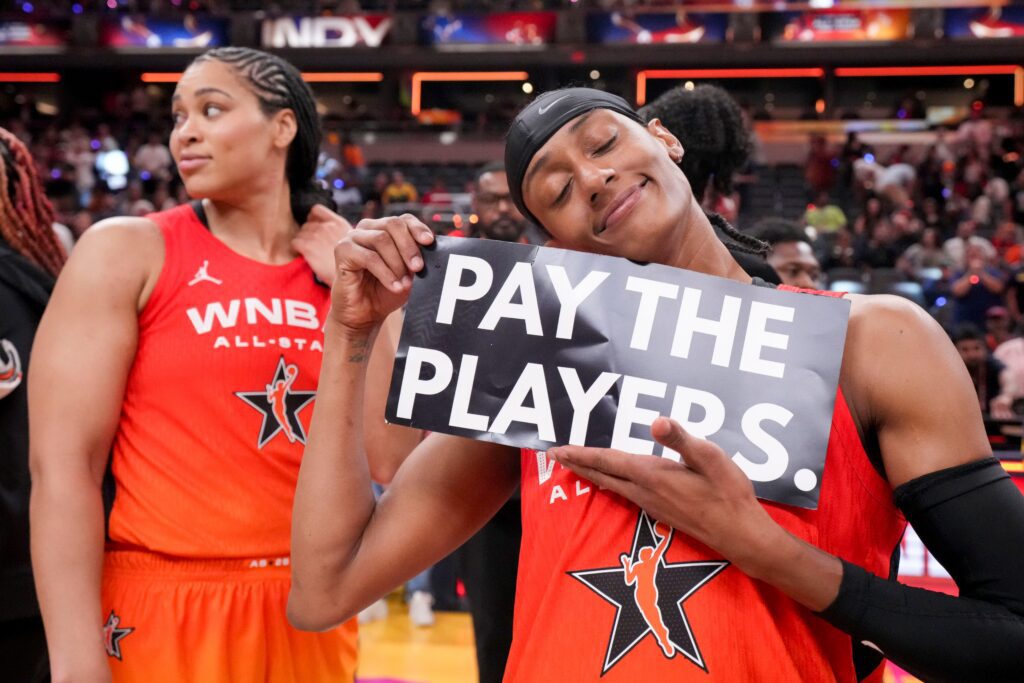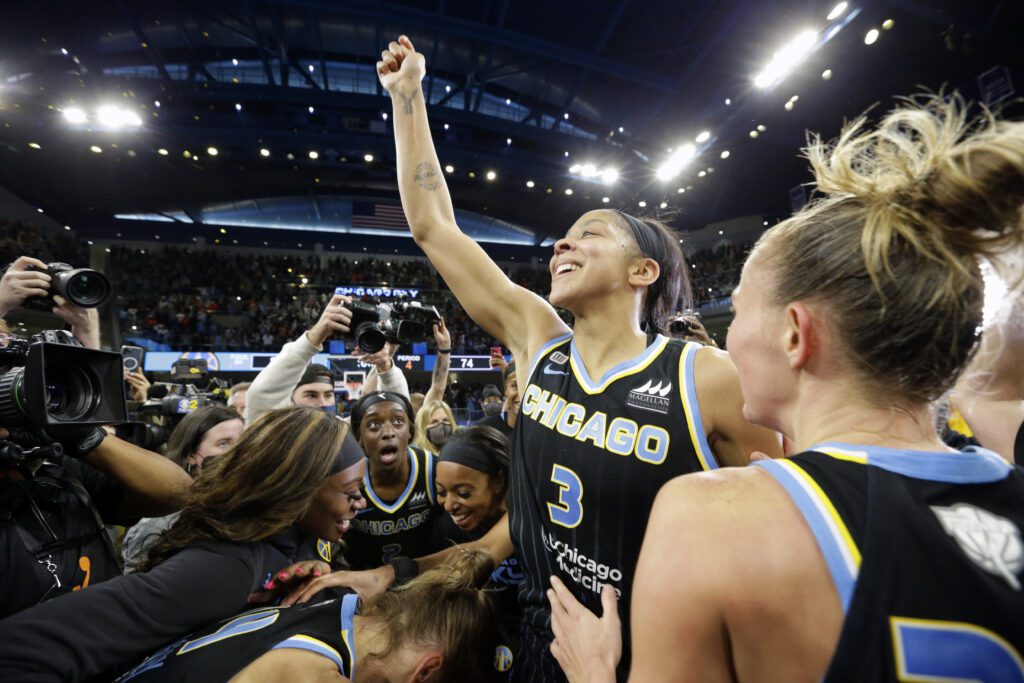Alanna Smith is an Australian basketball player who plays for both the Phoenix Mercury and the Australian national team. A graduate of Stanford University, Smith was the 8th pick in the 2019 draft. She spoke with Just Women’s Sports about what the Olympics postponement means to hear and her teammates, the uncertainty surrounding the WNBA season, and what it was like to have a teammate who likely contracted the coronavirus.
When did you first start to register that the coronavirus was a big deal?
I think in Australia, because we’re pretty isolated from the rest of the world, we were at little behind. We were watching as China and Italy started to report a lot of cases and go into lockdown. And then you guys in the US started to experience a surge. I think that prompted Australia to realize that we needed to make some moves, especially as cases started to pop up. Because there’s not enough materials to test it, we’re making estimates as to how many people have it. You just don’t know, but you know it’s a lot. Nowhere near the same amount as other places, but we’re still actively trying to stop the spread. Social distancing is in effect, and only essential businesses are open. We’re being encouraged to stay indoors. And all of that happened quite fast, maybe in just the past week or two.
And at what point did you realize the Olympics might be postponed?
Once travel bans were being put in place, and people were being discouraged from travelling. That was when I thought, Okay, this is an issue. Not just for basketball but for other sports as well, because people need to travel to qualifiers and such. And then just thinking about sports in general, so many of them involve contact. You’re in close proximity with others, which is super high-risk. So yeah, I had doubts early on to be honest, just thinking about the health and the safety of all the athletes as well as the fans. It didn’t seem plausible that they could pull it off.
What did you think of Australia’s decision to opt out prior to the official postponement? How did you think the committee handled everything?
It was the right decision, just in terms of the health and safety of everyone. And I think the Australian Olympic Committee did a really good job of keeping us in the loop. They were sending out emails two to three times a week, telling us where to go for support and such. We weren’t left in the dark. We had a pretty good idea of what was going on. So overall I think they did their best in terms of the situation at hand. Obviously, right now everyone has to take it day by day, week by week.
But I also know that it was a really, really hard decision to make. You have athletes whose whole lives were dedicated to going to these Olympics. They worked year after year for this moment to be on the world stage, and then to just have it pulled out from under them is really tough. But thankfully, the games aren’t cancelled. They’re still happening, just at a different date.
How would you describe your team’s reaction to all this?
I think overall, it’s definitely a little bit of heartbreak from the national team perspective. We were in a really good spot. We were ready, and we were really, really excited to get together to prepare for the Olympics. We qualified in early February in France, about two weeks before everything went crazy, and we came home from that expecting to turn all our attention to Tokyo. Obviously, that isn’t happening. But I also sense a bit of relief from a lot of people as well, because people were very worried about what was going to happen and what would come out of it if it was allowed to go ahead.
And how has all of this affected you personally?
I mean, I don’t have a job. I’m out of work. I play a sport for a living, and it’s not possible to do that right now. So like many people, I don’t have any income. And because all the gyms are closed, I can’t go and work out, I can’t lift, I can’t go to a basketball court, I can’t shoot. I’ve been left to my own devices, and I have to get creative about working out at home. It hasn’t been that bad, to be honest. There’s some fun ways to work out at home. I’ve got a little bit of equipment, so I’m lucky that I can at least do some typical stuff. It’s really more about staying active, so I’ve been trying to figure out ways to do that while also staying inside.
Your teammate, Liz Cambage, was in China in December, where she fell ill with what seems like a bad case of COVID-19. You all played together afterwards. What was that like?
When she was telling us about this sickness, we didn’t know what it was. And she was 100% fine when we saw her in France. She was fully healthy, she’d gotten the okay from doctors and everything, so we were confident that she was healthy and we were all going to be okay. We didn’t really know the full extent of the illness until after France, and then we were like, “Shit.” But no Opals have been confirmed positive since, so I think we’re okay. It was a real case of ignorance is bliss, because if we knew then what we know now, there’d have been a lot more stress.
Even though you saw postponement coming, I imagine the uncertainty was tough to deal with. Do you feel like you’re going through it all again with the WNBA now?
It was tough, because you put a lot of emotional energy into preparing for something like the Olympics. Plus it was just so close. And personally, I’m recovering from injury, so I’m rehabbing now and was trying to get my body right for the next few months in order to get back to my peak when the games started. Now I’m aiming for the WNBA season, but that’s up in the air as well. We haven’t been told whether it’s going to go ahead or if it’s going to be delayed.
You’re in this limbo, honestly, because you’re trying to prepare for the season physically, but you’re also trying to prepare yourself mentally for the chance that it’s either cancelled or delayed. It does mess with your emotions. You have to be pretty tough and just get on with it. Because this stuff is going to happen, and whether you like it or not, you just have to deal with it.
And unlike the NBA, you fly coach in the WNBA, which means even if you were playing games without fans, you’d still be exposed to crowds on a regular basis if the season went on.
Exactly. We’d only have so much control over the environment. We wouldn’t really have the luxury of guaranteed safety, so it’s a whole different thought process behind the WNBA’s decision. We just have to wait and see.
What communications have you received from the WNBA regarding a potential delay?
We receive a lot of emails from the Players’ Associations. Just check-ins, making sure we’re safe, and that if we need anything or have to travel at all, they’re aware of it. They did a really good job of getting people back to their home country who needed to go. It’s similar to what we experienced with the Olympic Committee as well. We get updates pretty often about what’s going on and where people’s thoughts are. But we’re all pretty much waiting week-to-week to see how the situation progresses and to see if the season can still go ahead.
In the meantime, are you just going to train as though it’s starting on the intended day?
At the moment, yes. But like I said, I’m still not sure what decision is going to be made in terms of that. I mean, you look at the NBA, and nobody knows if it’s going to be delayed or if they’ll have to cancel. So I’m just trying to keep fit, and keep relatively active in the hopes that it will go ahead. But you have to be prepared for every outcome, whether you like it or not.




